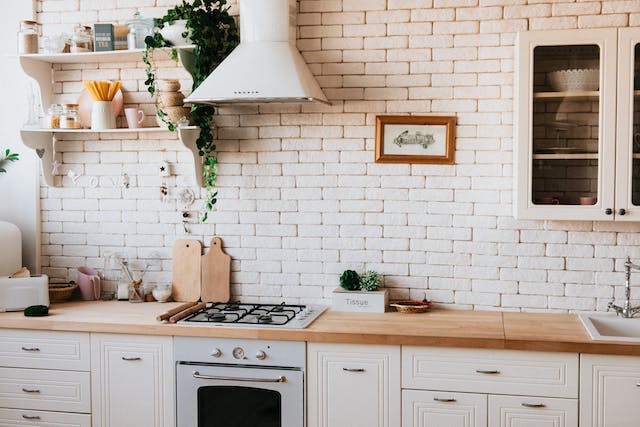Feng Shui is an ancient Chinese art that focuses on harmonising individuals with their environments. The term translates to “wind and water” in English, reflecting the idea of creating a balance between the natural elements to promote health, prosperity and overall well-being. Feng Shui is based on the belief that the arrangement and orientation of objects and spaces can influence energy flow, known as “chi” or “qi”.
Feng shui uses five elements to obtain its balance: wood, fire, earth, metal and water. These represent more than their physicality, going beyond dirt and flames. It’s about the symbolism of the elements, for example, water represents clarity and wisdom.
It may surprise you to know that feng shui isn’t just about colours and furniture placements; flooring also plays a significant role in creating this balanced environment as it’s the foundation of a space.
Materials
There’s an emphasis on using natural materials when it comes to feng shui as it not only incorporates the earth element into your home, but it also creates good energy. Synthetic materials do the opposite and add negativity to your space.
There isn’t a “right” choice when it comes to choosing flooring as it depends on your personal preferences. Wood flooring, however, is recommended as it not only ticks off the wood element of feng shui, but it also has many health benefits. Wooden flooring symbolises growth, vitality and abundance; it’s believed that using this flooring will then enhance these qualities within your home. This is the same with engineered wood flooring, which is also a more budget-friendly choice for your home.
Other natural materials such as stone and slate are also suitable options for feng shui homes. They represent strength and stability.
Colours
Feng shui recommends neutral, earthy and natural colours as darker ones can dampen the energy of the room. Applying this to your floor, it’s best to keep them as close to their natural state as possible. Classic wooden floors are incredibly suitable due to them typically staying their natural colour and they’re also notorious for being a versatile flooring choice that can match most – if not all – interiors.
This also applies to stone and laminate flooring, which usually keep their natural colours.
Patterns
Whether you’re looking for something simple or complex, when it comes to flooring you have a wide variety of patterns to choose from. When it comes to feng shui, however, it’s suggested that you keep your flooring subdued as floors can pull energy towards them. This would then direct your energy down and out.
To keep your good energy, it’s recommended to avoid stripes and herringbone as they’re eye-catching and direct your energy away from your home. It’s also important to avoid diamond shapes as the points represent “poison arrows” that point toward every door and block the energy. Hexagons, however, are a great shape to use as they have no sharp arrow points.
Layout
When it comes to laying down your floor, the most important thing to remember is that the direction of your planks is the direction of your energy flow. For instance, laying planks widthways in a narrow hallway is a bad idea as your energy flows straight into the wall. Another example is laying your planks down a narrow space and out a window, as you’re then losing the energy.
It’s ideal to have your flooring consistent throughout your house. This provides your home with a strong and stable energy flow as having different floors in each room can weaken and disrupt your energy flow.
A helpful trick is to ask yourself where the flooring pattern directs the energy flow; this will then help you plan your floor layout in a way that feng shui supports.
Underfloor Heating
When it comes to underfloor heating, feng shui doesn’t support it because it reverses the natural laws of energy flow, affecting the human body. To feng shui, the sun is the only natural source of heat and using underfloor heating goes against it.
Conclusion
Feng shui is there to create a feeling of harmony and peace within your home. It’s to help with positive energy, but you shouldn’t let it take over all aspects of your home. By using this ancient Chinese science when choosing and designing your flooring, you’ll have the foundations of feng shui in place and will have gained enough knowledge to incorporate more feng shui tips and tricks.


